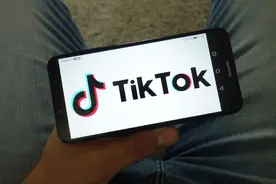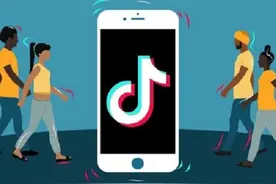Facebook's products are facing the impact of TikTok.Content ranking based on social graph is less and less attractive to users than the taste and convenience of recommended content.However, from media to algorithms and even interaction, three trends are emerging in the consumer Internet.For Meta, the next two years will be critical.If it can cross the minefield of TikTok, it can stand in front of realizing the long-term vision.Focus: The axiom of the consumer Internet is that convenience is higher than all social media competition.The competition for recommended media depends on popularity.The final winner may be the content created by pure AI.The first trend is to change to more immersive media.The second trend is the continuous addition of artificial intelligence.The third trend is to change the interaction model from user orientation to computer control or in 2010, It was my first year in business school, and I helped to make a speech entitled "Twitter 101": Twitter 101 Presentation My part is called "Twitter Value Proposition".I first admitted that you can find what you eat for lunch on Twitter, and then pointed out that "In fact, you can find anything you want on Twitter, which is a good thing." Twitter's value proposition is, You can "see exactly what you need to see in one place in real time"; I showed the audience how to cancel the process of following me to illustrate this point: The key point of the slides showing the value orientation of Twitter is that Twitter needs to actively manage your dynamic messages, but if you work hard, you can get something very interesting and valuable for you.Most of the audience did not accept this view.1、 If there is an axiom governing the consumption of the Internet (meaning that you can consume anything) on Facebook and Instagram, it is that convenience is above everything.This is the problem with Twitter: for many (almost enough) people, it is not easy to figure out how to follow the right people.The dominant social media sector is Facebook, which digitises offline relationships.Facebook's social graph is the ultimate growth hacker: from the moment you create an account, Facebook has tried to connect you with everyone you know or want to know in high school, college, hometown, workplace.You have named an offline network, and Facebook has digitized it.Of course, this means that there are too many updates and photos to track, so Facebook needs to rank these updates and photos and present them on dynamic messages that you can scroll endlessly.As we all know, when News Feed was first launched, users actually hated it: when it was launched, protesters ran outside the headquarters of Palo Alto Facebook, and there were more online protesters; Ironically, most of those protests were on Facebook
-
Home
-
Product
SolutionsmanagementUnified management of multiple mobile phones and accounts
Marketing automationUse scripts instead of manual automation to run APP applications
Self-developed scriptJavascript can be used to develop all mobile terminal automation operations
SolutionsData monitoringMulti-dimensional monitoring account and peer online red data
analysis reportMulti-dimensional analysis report of data
-
About






Comment Cancel reply